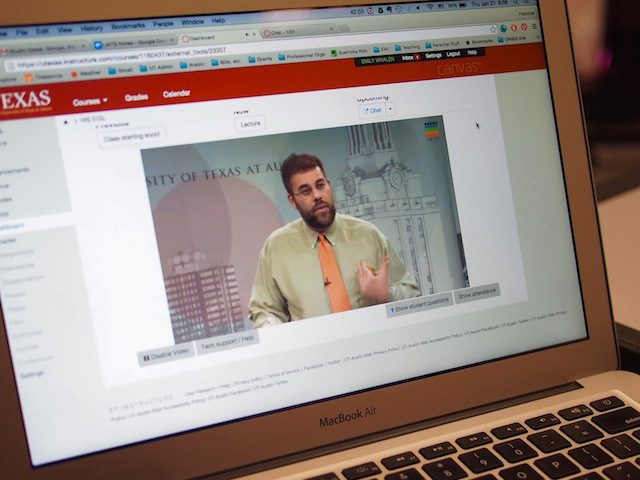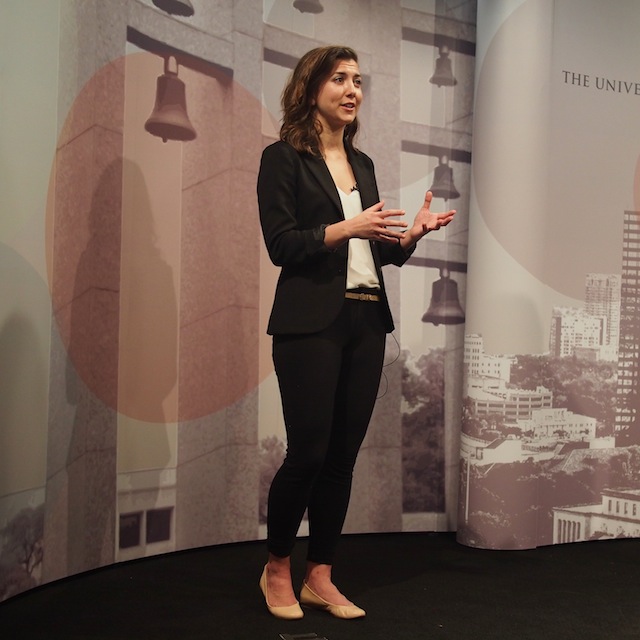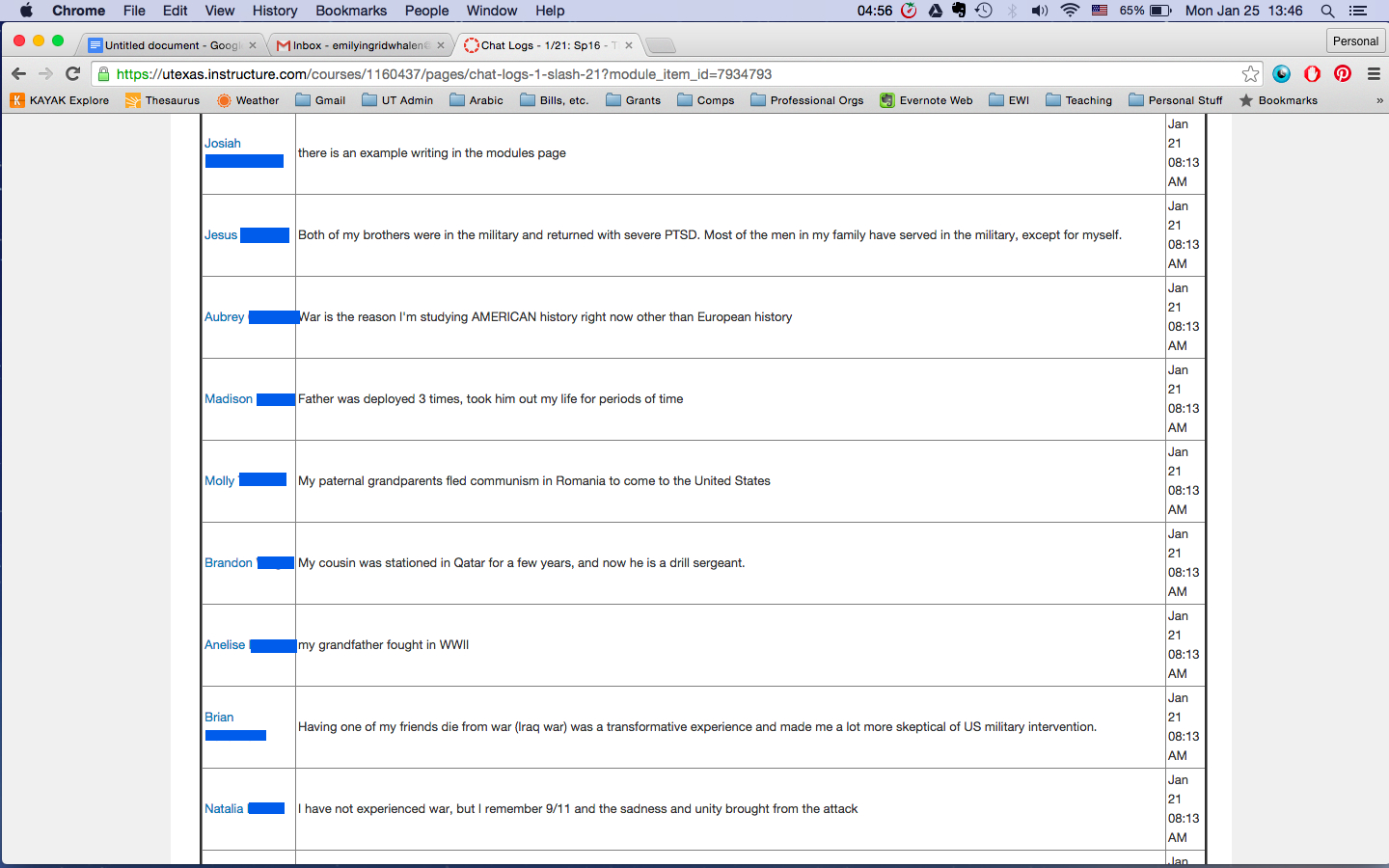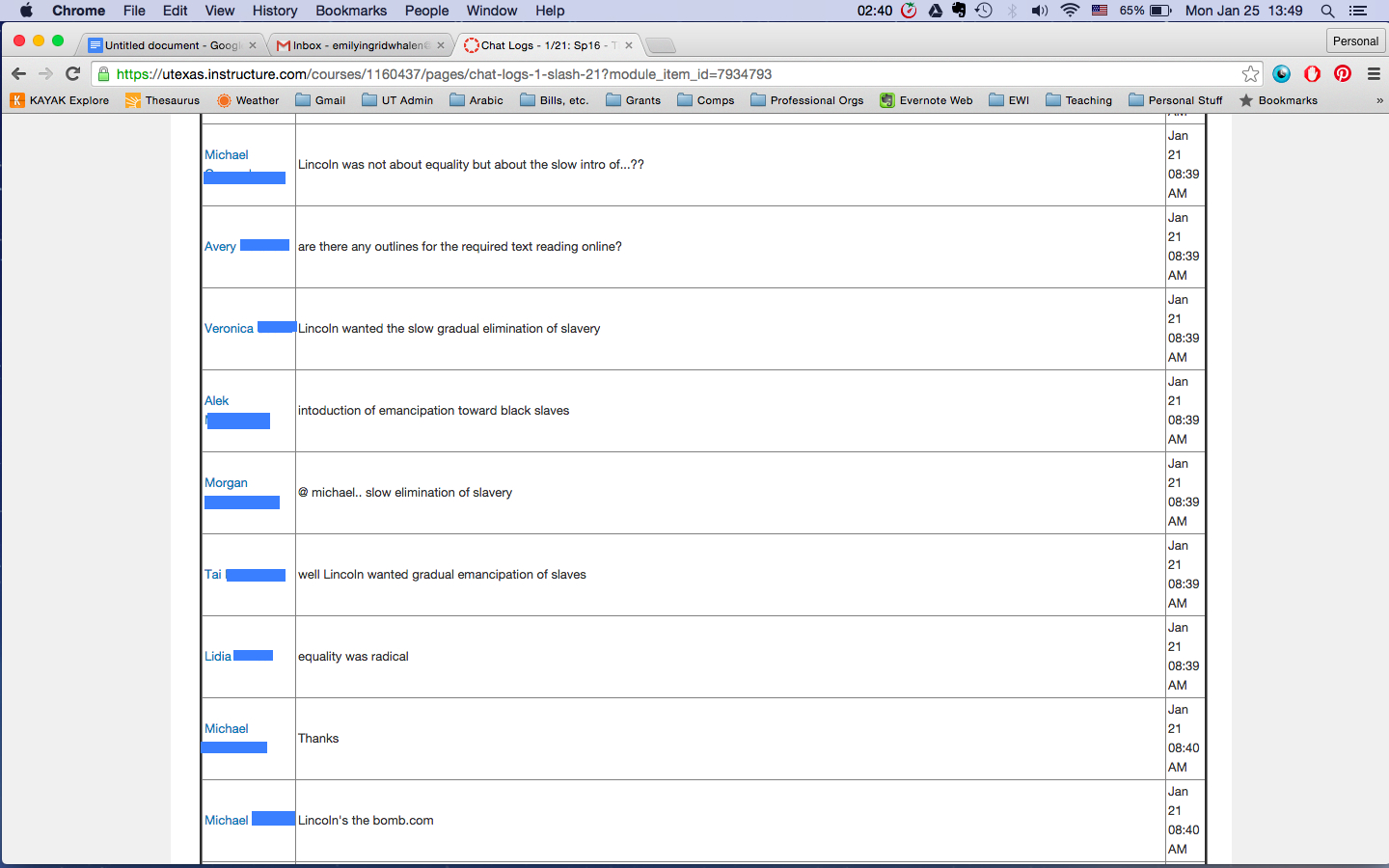Every year thousands of students take introductory courses in U.S. History at UT Austin. This spring Prof Jeremi Suri is experimenting with an online version of the U.S. History since 1865 survey course. He and his students will blog about the experience of digital teaching for readers of Not Even Past.
By Asаad Lutfi
It’s not easy to wake up at eight in the morning especially with a cozy blanket over you and a comfy pillow under your head – I’m sure we all put up quite a fight. What astonishes me every time I wake up for my history class with Dr. Suri, is that unlike my previous morning classes, the web based class promotes interaction at a time when only birds can be heard chirping.
Having lived the greater part of my life getting spoiled in private schools in Pakistan, I have had the privilege of experiencing a variety of teaching and learning methods. The subcontinent, India and Pakistan, having been under the British rule for hundreds of years, is unfortunately still very dependent on the British when it comes to education. Though at the grassroots we are forming our own curriculum, higher education is still totally dependent on British Educational Boards. Pakistani education is characterized by private tutoring and personalized attention leading to a system of teacher-dependent learning. I came to America two years ago and I still have a lot to learn before I get accustomed to the teacher-independent learning system, as I will call it, that is prevalent in universities here.
One may argue for and against both, but what amuses me as I wake up every morning for my history class, is this new form of online education that never fails to captivate me. We are fortunate enough to be part of a generation that has seen the rise of technology that has transformed the world within the past 20 years. Not only do we not use paper maps anymore, we have gone so far as to replace human interaction with text and emails. But can we go far enough to say that online classes will revolutionize the learning experience by providing instant, low cost education designed for convenience? Attending a class in bed is something we would all love to do but what about the distractions at home? Do we actually learn as much as when we go to class? YES.
The class chat between the students and the teaching assistants leads to many fruitful discussions that are uncommon in a normal class setting. Not only that, it also helps people who are intimidated by the thought of speaking out in front of 300 other students. I believe that asking questions is the key to learning. The online class platform not only promotes discussion between the students, it also allows the teaching assistants and the teacher to have a better idea of the mentality and direction the students are heading.
The self-based learning system not only captivates its audience, it also promotes independent learning and research. Being only a click away, students can look up any event and topic they want to learn about within minutes without the fear of the professor’s disapproval. My former history teacher did not let us use any electronic devices in class. In contrast, the online platform, in my experience, promotes web surfing and research. This makes the online class a whole new experience for me. It alters my learning strategies and makes me focus on something I would like to do much more than I do in my classes — research.
I think the online learning platform can help raise the literacy rates and promote education through online means in third world countries like Pakistan. I would also note that, it could be the key to promoting learning for girls in Pakistan who are from families that are against sending their daughters to school. I believe that with affordable electronic devices or even a library that lends out laptops or tablets in the rural areas of Pakistan, we can solve the huge problem of education for women in the rural areas of Pakistan. I think a more educated Pakistan along with other third world countries would resolve a lot of broader problems.
It is certainly a big step to move away from the classroom but with the online classes at our disposal, I think it is about time that we should acknowledge the beginning of a new era of education and give it a try.



